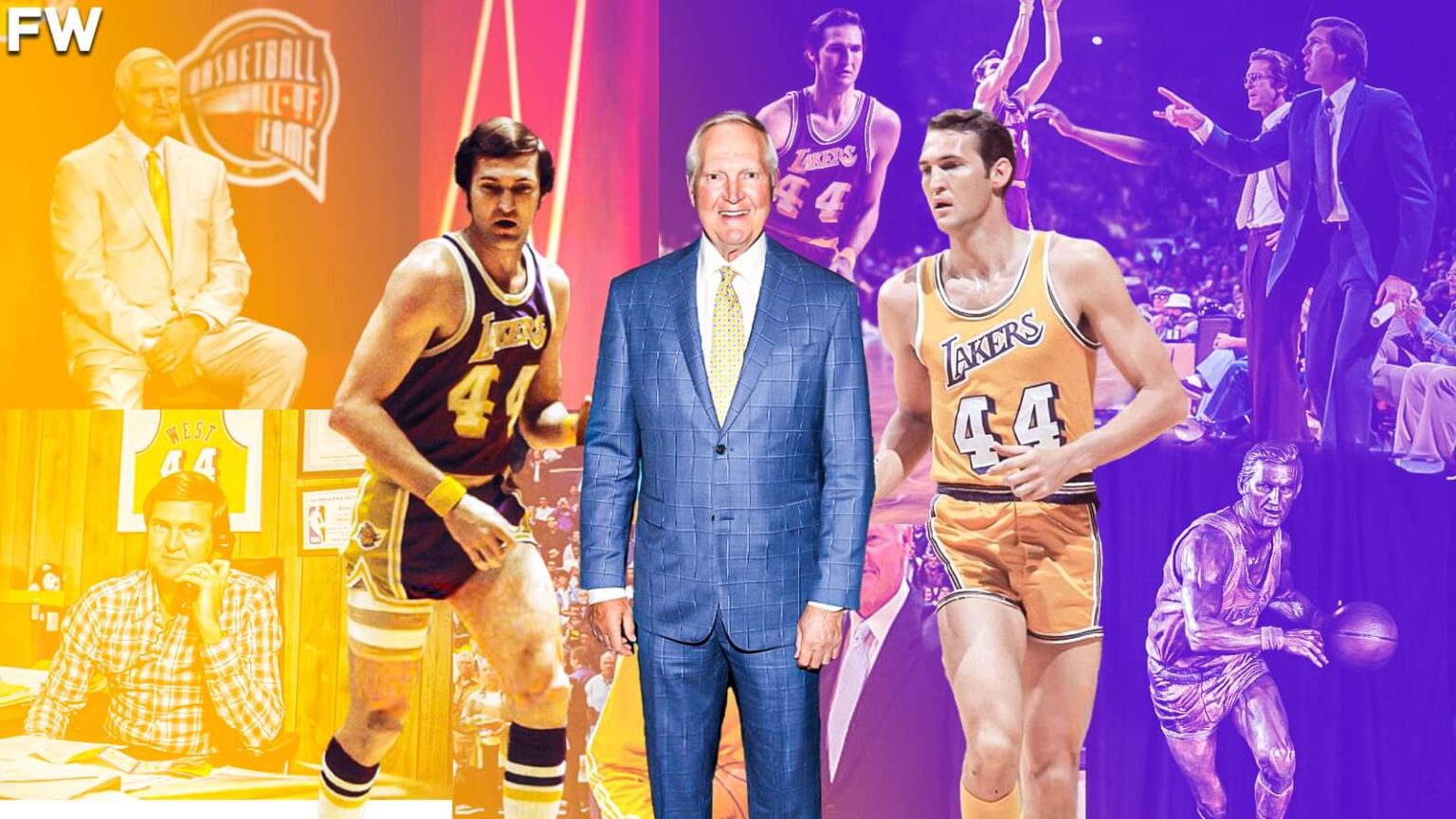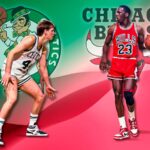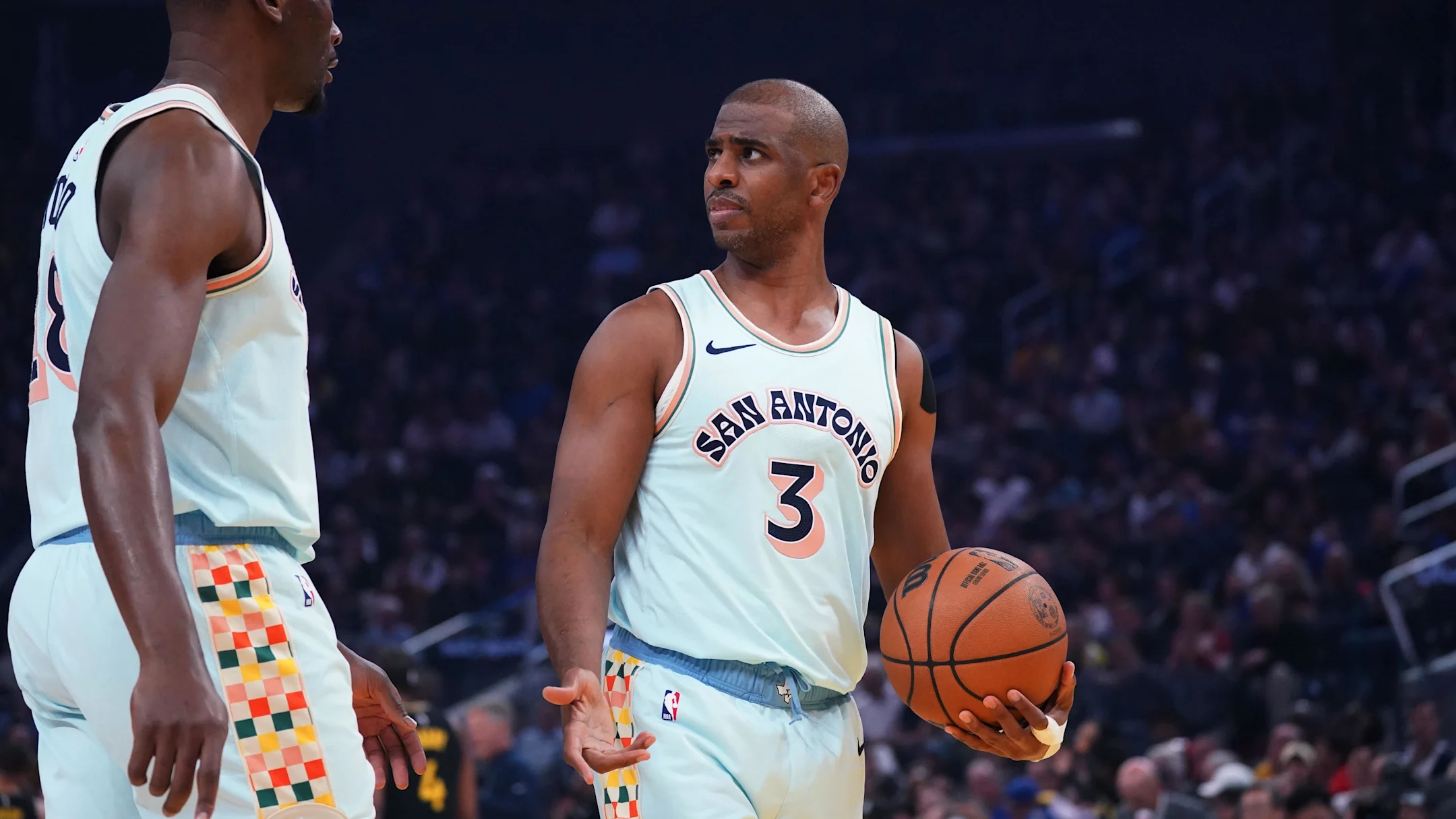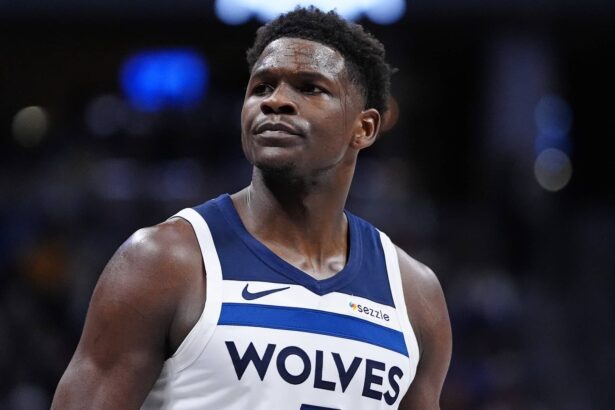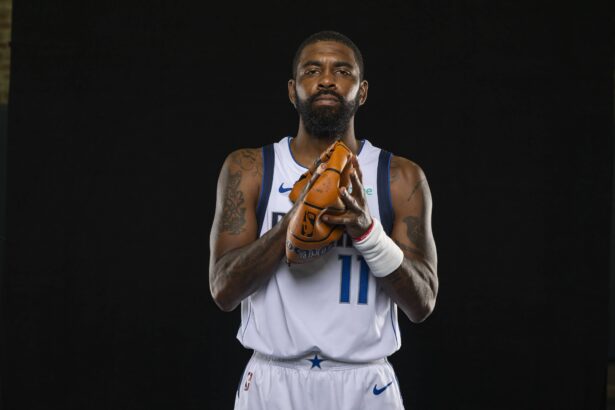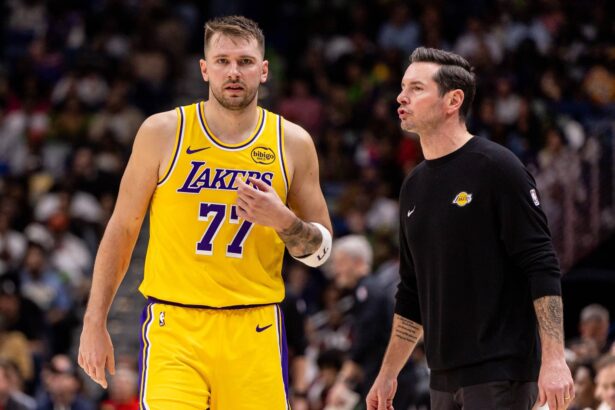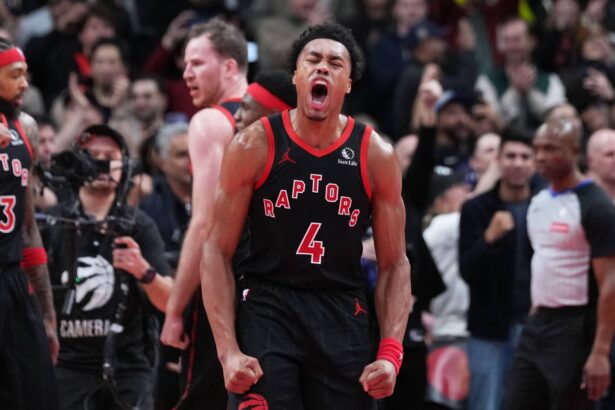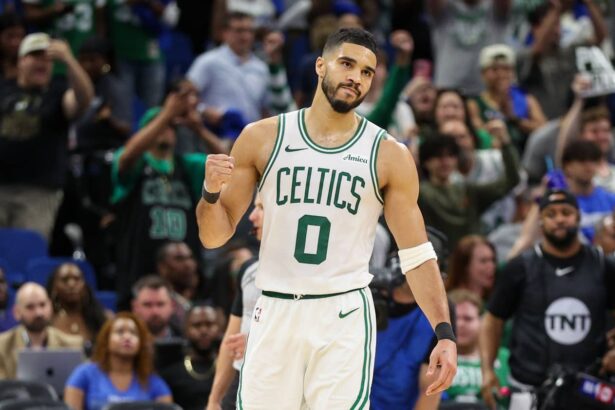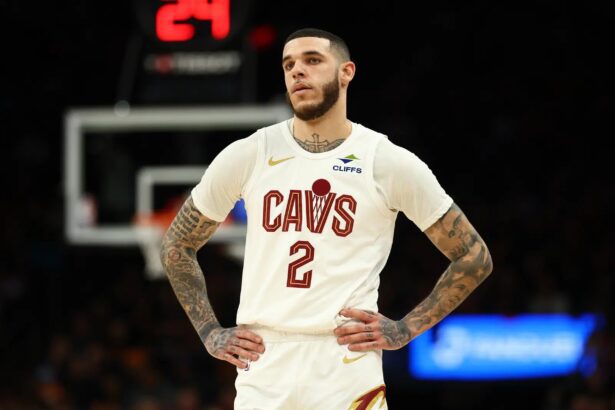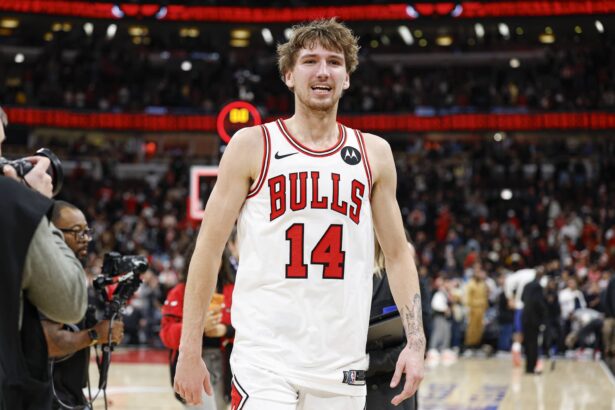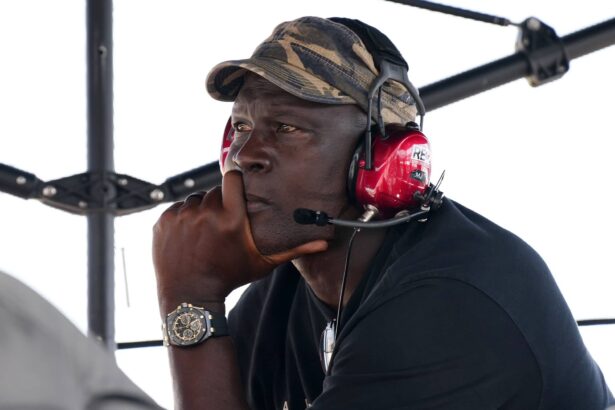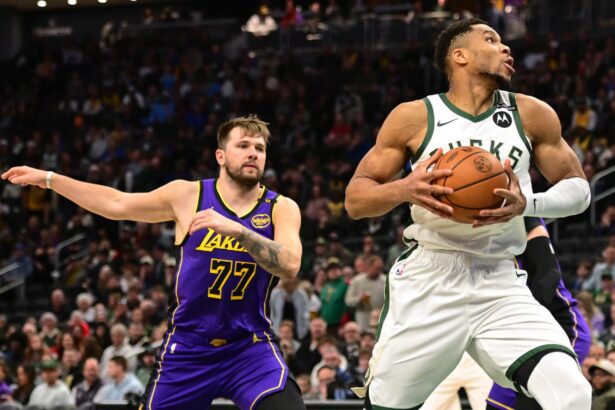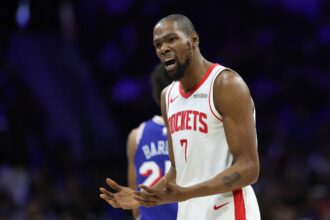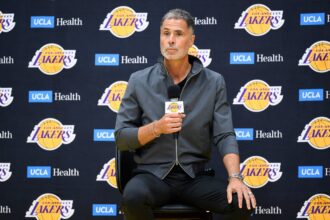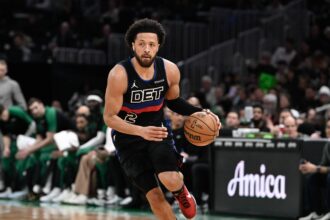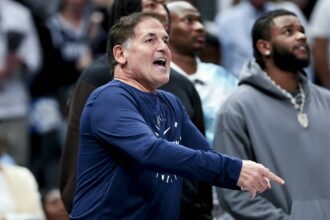Jerry West is a name every NBA fan knows. The first thing they probably think of when hearing the name Jerry West is the logo.
- Jerry West’s Childhood To His College Days
- Jerry West Enters The NBA And Becomes The Logo
- Jerry West Becomes A Legendary GM
- Next
- Julius Erving Biography: The Story Of How Dr. J Became An NBA Icon
- Wilt Chamberlain Biography: The Life, Career, And Legend Of The Most Dominant NBA Player Ever
- The Biography Of The G.O.A.T.: Michael Jordan
- LeBron James: The Biography Of The NBA’s King
- Kobe Bryant Biography: The Life Of The Black Mamba
Yes, the iconic NBA logo is the silhouette of Jerry West dribbling a basketball. After that, most fans may know about him being a great general manager of teams like the Los Angeles Lakers or even a great player for those same Lakers.
But how much do you truly know about Jerry West’s life? In this article, we’ll dive deep into Jerry West, from his childhood up to his life today.
Without further ado, this is the biography of “The Logo” himself, Jerry West.
Jerry West’s Childhood To His College Days
Jerome (Jerry) Alan West was born on May 28, 1938, in Chelyan, West Virginia. His parents were Howard and Cecil West, and he was the fifth of six children his parents had.
The West family was not privileged growing up. The family was poor, and Howard, his father, had a mean temper on him.
West had said in the past that his father would beat him, and so severely that West slept with a loaded shotgun for a while in fear he might have to use it to defend himself against his father.
Luckily, West never had to use it, but this didn’t stop tragedy from hitting his family. West’s older brother, David, was killed in the Korean War. This affected West’s self-esteem, as he became introverted from the incident.
As a child, West didn’t participate in any sports because of his frail body. West was extremely skinny, and this led to his needing vitamin injections from his doctor to help him grow properly.
Yes, the stack was certainly stacked against Jerry West as a child, but he didn’t give up. West eventually found a sport he liked, and this sport was basketball.
West would shoot at a neighbor’s hoop that was nailed to a storage shed. It didn’t matter if it was hot out, raining, or even snowing, West spent his days shooting the ball, practicing his shot from every angle… It would certainly pay off for him later in life.
By the time West attended East Bank High School, he was ready to play on the school’s varsity basketball team… Or, so he thought. The coach liked West’s game but didn’t like his height, as West stood under 6’0”.
So, West would play on the freshman team, quickly becoming the best player and the captain of the team. By his sophomore year, West grew to be 6’0”, which was good enough for him to make the varsity team.
West became the star player in his high school basketball right away. He was known for his sweet mid-range jump shot that no defender seemed to know how to stop.
In his three years playing on the varsity team, West was named All-State from 1953 to 1956. In 1956, West was named both an All-American and West Virginia Player of the Year.
As a senior, West led his school to a state championship. This caught the attention of many college scouts who were clamoring to add West to their school’s roster.
West would eventually choose to attend West Virginia University, and his stardom continued to rise. As a freshman, West led WVU’s freshman squad to a perfect 17-0 record, proving his talent would fit perfectly on the varsity team.
In his sophomore year on the varsity squad, West averaged 17.8 points and 11.1 rebounds per game. He led WVU to a 26–2 record before seeing his team lose in the postseason tournament to Manhattan College.
Despite the loss, West was honored greatly for his play during the season. He was named First Team All-Southern Conference, Southern Conference Tournament Most Valuable Player Award, and First Team honors.
This wasn’t all, West was also named an All-American Third Team call-up, Chuck Taylor-Converse Second-team All-American honors, and he was named Third-team All-American honors by both the Associated Press and the United Press International.
Yes, West was the player to watch in college basketball. The scary thing was he was only going to get better in the next year.
In his junior year, West raised his scoring and rebounding averages to 26.6 points and 12.3 rebounds per game. West led WVU to a 29-5 record, and he was ready for the NCAA tournament.
In the NCAA tournament that year West went completely bonkers. He averaged 32.0 points per game, but more importantly, he tied the NCAA five-game tournament record by scoring 160 points in those five games.
In the 1959 NCAA University Division Basketball Championship Game, West had a great game, scoring 28 points while grabbing 11 rebounds. The problem was the outcome, as his school lost 71–70 to California University.
Once again, despite the loss, West earned many honors for his play. He was named an All-American, Southern Conference Player of the Year, and Athlete of the Year.
West was also named Southern Conference Tournament MVP and Most Outstanding Player of the Final Four. It was safe to say Jerry West had a bright future in basketball ahead of him.
In his senior year at WVU, West’s averages continued to climb, as he averaged 29.3 points and 16.5 rebounds per game. He led his school to a 26-5 record.
West would not win an NCAA championship, but this didn’t stop people from realizing his greatness as a player. At the end of his collegiate career, West became WVU’s all-time leading scorer and rebounder.
West was also honored with many more awards for his play as a senior. He was named yet again an All-American and was voted Southern Conference MVP.
In 1960, West took his basketball game global when he played for the U.S. men’s basketball team in the 1960 Summer Olympic Games. West was named co-captained with another future NBA great, Oscar Robertson.
Team USA won the gold medal, going 8-0. West averaged 14.3 points per game, which was third-best on the team behind Oscar Robertson (17.0) and Jerry Lucas (16.8).
After having great careers in high school and college, while earning an Olympic gold medal, there was only one last place to go for Jerry West… The NBA.
Jerry West Enters The NBA And Becomes The Logo
In the 1960 NBA Draft, the Minneapolis Lakers selected Jerry West as the second overall pick. The Lakers would move to Los Angeles before the season, and the young man from a small town had to adjust to LA’s fast lifestyle pretty quickly.
West joined a Lakers squad that had the great Elgin Baylor on it. Despite the talent, the Lakers struggled during the season, finishing with a 36-43 record.
West had a solid rookie season, finishing with averages of 17.6 points, 7.7 rebounds, and 4.2 assists per game. West’s Olympic teammate, Oscar Robertson, won the Rookie of the Year award.
The Lakers would make the playoffs, even with the losing record. LA would be the second seed and take on the third seed Detroit Pistons.
The Lakers would go on to defeat the Pistons 3-2 to advance to the Western Division Finals to face the St. Louis Hawks. In the Western Division Finals, West and the Lakers pushed the Hawks to seven games before falling 105-103 in the series’ final game.
For his first NBA playoff run, West averaged 22.9 points, 8.7 rebounds, and 5.3 assists in 12 playoff games. West putting up good numbers, yet falling short, would, unfortunately, become a theme in his career.
West would play 14 years in the NBA, all for the Lakers, and he’d averaged 27.0 points per game for his career, with 31.3 being the highest points average in a season for West. Also, West’s 17.6 points per game average as a rookie would be the only time he’d average under 20.0 points per game in a season during his career.
In the playoffs, West got even better. He put up incredible averages of 29.1 points per game, including averaging 40.6 points per game in 11 games during the 1965 playoffs.
Yes, Jerry West was a dominant force in the NBA and a true star. He was so revered by the NBA that they used his image as the new NBA logo in 1969.
“The Logo” was also a master in clutch situations, and he earned another nickname, “Mr. Clutch.” No shot is more famous in West’s career than his 60-foot buzzer-beater in Game 3 of the 1970 Finals to force overtime.
Despite this shot being so iconic, as mentioned earlier, West putting up good numbers, yet falling short, would, unfortunately, become a theme in his career. The Lakers would go on to lose the 1970 NBA Finals against the New York Knicks in seven games, even though West averaged 31.3 points and 7.7 assists per game in the series.
In fact, West holds the record for most NBA Finals losses by one player with eight. He’s also the only player to win a Finals MVP Award while being on the losing team.
This occurred in the 1969 NBA Finals when Bill Russell’s Boston Celtics won 4-3. West averaged 37.9 points and 7.4 assists per game in the series. The 1969 NBA Finals was the first Finals to hand out the Finals MVP award.
West would win one NBA title with the Lakers. This was in 1972, as the Lakers got revenge on the New York Knicks by defeating them in five games.
West would not win this Finals MVP; it would go to his teammate Wilt Chamberlain. Still, West played well, averaging 19.8 points, 4.0 rebounds, and 8.8 assists per game.
West retired from playing basketball in 1974. He finished with career averages of 27.0 points, 5.8 rebounds, 6.7 assists, 2.6 steals, and 0.7 blocks per game. West’s last season in the league was the first season the NBA counted steals and blocks, so West’s averages could’ve been higher.
West won numerous awards in his career, like his Finals MVP Award in 1969. He also won a scoring title (1969-70), an assist title (1971-72), was named to 12 All-NBA Teams and 5 All-Defensive Teams. West also was named the 1972 All-Star Game MVP when he scored 13 points on 6-9 shooting, including hitting the game-winning shot.
Yes, Jerry West, despite his failures at winning more NBA titles, is still one of the greatest talents the NBA has ever seen. His offensive and defensive ability as a guard has only been matched by a few other players in league history.
Jerry West may have retired from playing the game of basketball in 1974, but his career in basketball was far from over. In fact, West may have become even greater in his future basketball career.
Jerry West Becomes A Legendary GM
Jerry West would not stay retired long, as he was hired as the Los Angeles Lakers’ new head coach for the 1976–77 season. West would coach for three seasons, compiling a 145-101 record in that span.
The Lakers would reach the playoffs in all three years West coached the team, yet, West wasn’t happy. This was noticed by then Lakers owner Jack Kent Cooke, who later would talk about West losing interest as a coach.
“He was only moderately successful as a coach, because he could never understand why average players couldn’t do the things he did so easily,” Cooke said.
After stepping down from coaching, West worked as a scout for the Lakers for three years until he took on the role of the Lakers’ general manager. This is where West would have the greatest success in his NBA career as a general manager.
West became the Lakers’ general manager in 1982 and would stay there until after the 2000 playoffs were over. During that time, West helped put together Lakers teams that won six NBA titles in 1980, 1982, 1985, 1987, 1988, and 2000.
West is also responsible for making the draft-day trade with the Charlotte Hornets in 1996 to acquire Kobe Bryant. This trade would help lead the Lakers to five more NBA titles during Kobe’s legendary 20-year career.
In 2002, West joined the Memphis Grizzlies and helped the franchise reach its first NBA playoff berth in 2004. West would stay in Memphis as their general manager until 2007 when he retired.
This wouldn’t be the end of West in an NBA front office. He returned in 2011 as an adviser to the Golden State Warriors.
West would be a part of two Warriors championships in 2015 and 2017. West left the Warriors after their 2017 championship to join the Los Angeles Clippers as an executive board member, where he remains today.
West won one NBA title as a player and eight as an executive. “The Logo” was named NBA Executive of the Year in 1995 and in 2004. In 2019, West was honored with the Presidential Medal of Freedom for his years as a player, general manager, and supporter of the nation’s war veterans.
West is the father of five children. This includes Jonnie West, who is the husband of professional golfer Michelle Wie. Even though West has been in the spotlight for much of his life, he remains very private about much of his personal life.
Jerry West is a legendary player and general manager in NBA history. Without Jerry West, we wouldn’t have the iconic NBA logo, but that’s not it. We also wouldn’t have seen as much class brought into the league if it weren’t for the great Jerry West.
We sincerely appreciate and respect you as a reader of our site. It would help us a lot if you follow us on Google News because of the latest update.
Thanks for following us. We really appreciate your support.

